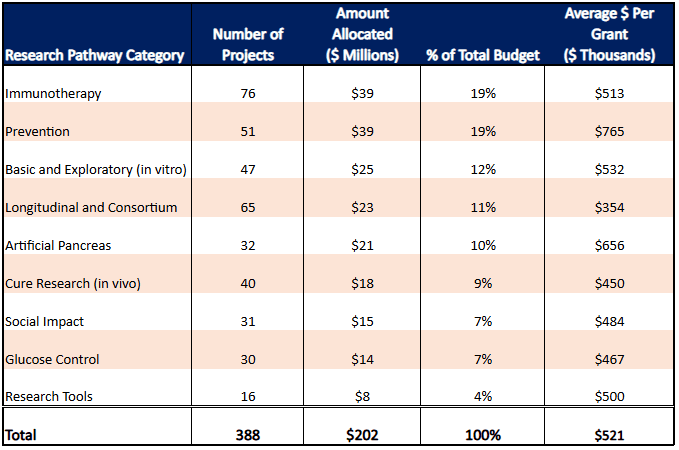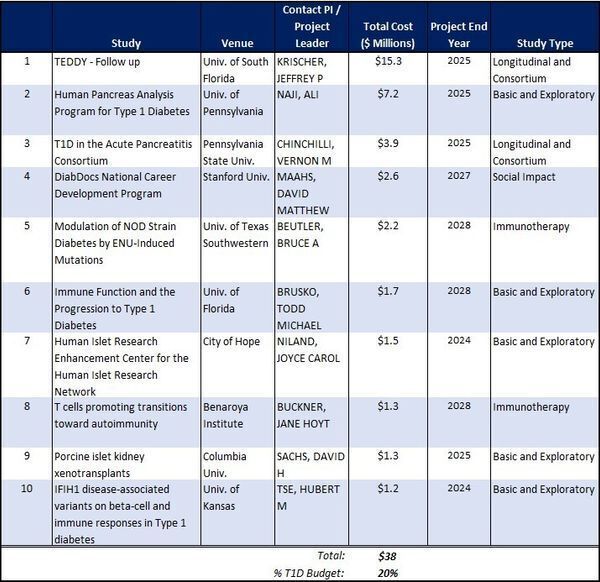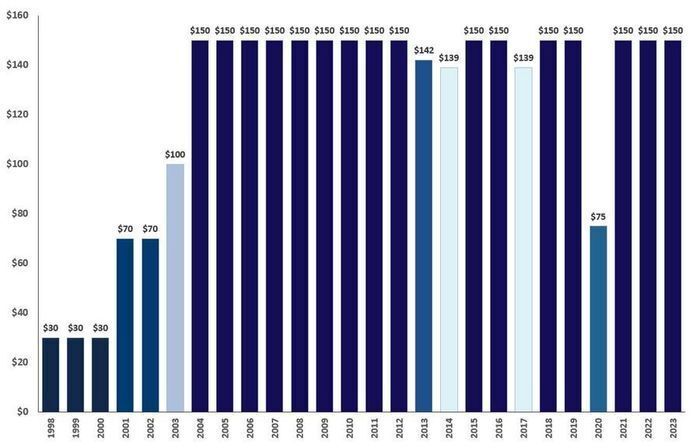
November 21, 2023
Key Highlights:
$1.2B NIH budget for diabetes research in 2023
$202M The amount of grants given to type 1 diabetes-specific research
388 The number of T1D research grants
$1B NIH allocation for T2D and other diabetes
26% Total percent of T1D funds received by the top 25 T1D grantees
Summary of 2023 T1D Grants
The National Institutes of Health (NIH) funds a broad range of research with varying objectives, from early bench science to social impact studies. The NIH holds a vital role in providing developmental support for early-stage exploratory research that has not yet attracted the attention of commercial enterprises. Another long-term NIH investment that is unique from other sponsors, is the endorsement of large, multi-year, multi-center mega studies that track T1D patients for several years, recording their experience with treatments from diagnosis onward. These studies include well-known names like TEDDY, the Pancreatitis Consortium, and TrialNet.
The two research categories that received the most support were Immunotherapy and Prevention, each accounting for 20% of the total T1D allocation. These were followed closely by early-stage Basic and Exploratory research and Longitudinal mega-studies (see chart A).
The NIH did not fund any Practical Cure projects in human trials.
Chart A: Research Pathway Budget Allocation

The Biggest Grants
In 2023, the NIH made 388 grants for type 1 diabetes. The top ten grants made by the NIH account for 20% of the total T1D research budget (see chart B). The largest single grant, in the amount of $15 million, was to the University of South Florida to continue the TEDDY study (The Environmental Determinants of Diabetes in the Young), which has been active since 2003. The second largest grant, just under half the size of the first at $7 million, was given to the University of Pennsylvania to analyze the human pancreas for clues about treating and/or curing T1D.
Four major research pathways are seen in these top 10 grants. Five are for early-stage Basic and Exploratory research, two are for early-stage Immunotherapy research, two are for Longitudinal mega studies, and the final one is a study to recruit doctors to research T1D, called DiabDocs.
Chart B: Top 10 Largest Grants

Future of the Special Diabetes Program (SDP)
The SDP is set to expire at the end of the 2023 fiscal year unless it receives an extension. The program has played an integral role in driving research breakthroughs for the T1D community. Without an extension, the ability to continue researching, providing support, and making advancements in the treatment and understanding of T1D, will be jeopardized. To address this, US Senators Susan Collins (R-ME) and Jeanne Shaheen (D-NH) proposed a bill to finance the program at $170 million for fiscal years 2024 and 2025, with a commitment to sustain it at this level until December 31, 2025, pending approval. Whether or not this bill is approved will determine the fate of the Special Diabetes Program.
Appendix A: SDP Annual Funding (as Stipulated by Congress — $ Millions)

